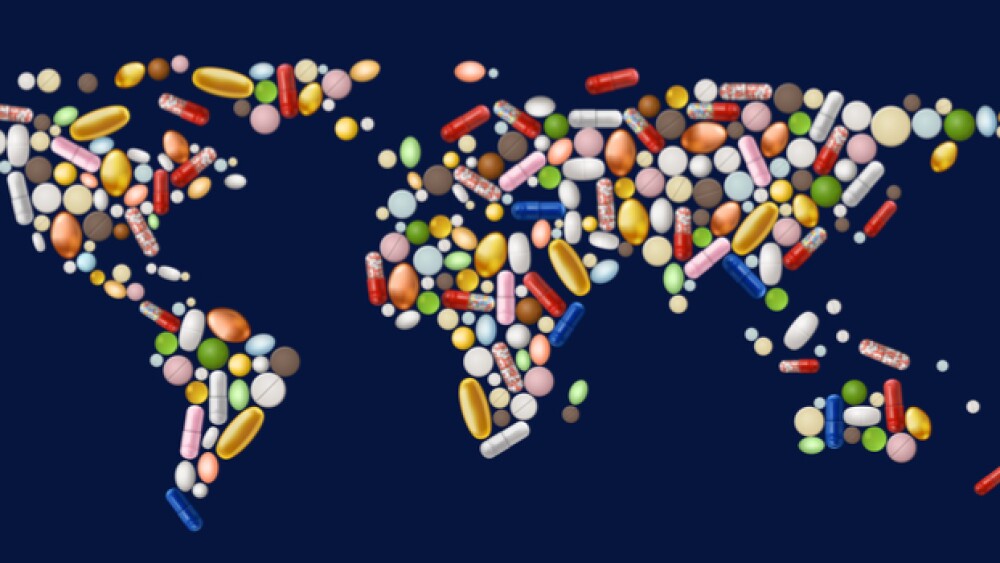Pharma and biotech companies from Asia to Europe provide updates on business and clinical activities.
Niramai -- Artificial intelligence-development health-tech company Niramai will develop an artificial intelligence (AI)-based computer-aided software for controlling the spread of River Blindness. India-based Niramai will leverage its Thermalytix diagnostic technology to detect the presence of live adult worms of Onchocerciasis which causes river blindness and significant disability. This non-invasive detection method is expected to help assess the efficacy of new drugs being developed to control the disease by killing the adult worms, potentially accelerating the elimination of river blindness, which has today infects approximately 17 million people in Africa. Niramai’s project is being financially supported through a grant from the Bill & Melinda Gates Foundation. Niramai’s Thermalytix is currently being used to detect early-stage breast cancer.
Lobsor Pharmaceuticals AB – Privately-held Lobsor announced that following Swedish MPA market approval in October 2018 for Lecigon, the Swedish Dental and Pharmaceutical Benefits Agency has included it on Sweden’s list of reimbursed drugs. Lobsor said this is a major milestone for the company and its therapeutic for the symptomatic treatment of Advanced Parkinson’s disease. Sweden-based Lobsor intends to obtain further market approvals and introduce Lecigon into carefully selected markets throughout Europe over the next 24 months.
Sigrid Therapeutics – Sweden-based Sigrid announced that the company’s lead product candidate, SiPore 15 was selected for presentation as late-breaking news at the American Diabetes Association in June. The presentation, titled “Engineered Silica Particles Work as a Molecular Sieve and Reduce Metabolic Risk Factors in Obese Male Volunteers”, will highlight SiPore15’s mode of action and First-in-Man clinical data. SiPore15 is under development as a first-in-class medical device targeting prediabetics and newly diagnosed type 2 diabetics. SiPore15 is also being evaluated in a Proof of Concept clinical trial in prediabetics and newly diagnosed type 2 diabetics in a multicenter trial in Europe.
Poxel SAS – French biopharma company Poxel announced positive topline late-stage data from its type 2 diabetes trial. The trial is assessing the efficacy of Imeglimin in 1,100 diabetes patients in Japan. The TIMES 1 trial demonstrated robust efficacy and achieved statistical significance for its primary endpoint, defined as a change of glycated hemoglobin A1c (HbA1c) versus placebo at week 24, with an HbA1c placebo-corrected mean change from baseline. The TIMES program is a joint development effort between Poxel and Sumitomo Dainippon Pharma. The companies entered into a strategic partnership in October 2017 for the development and commercialization of Imeglimin in Japan, China, South Korea, Taiwan and nine other Southeast and East Asian countries. Poxel anticipates presenting data results from the Phase 3 (TIMES 1) trial at an upcoming scientific meeting.
MaaT Pharma – Following a review from the Independent Data and Safety Monitoring Board, France-based Maat Pharma can continue with its Phase II HERACLES study. The HERACLES trial investigates the use of lead biotherapeutic MaaT013 in steroid-resistant, gastrointestinal-predominant, acute graft-versus-host-disease after allogeneic hematopoietic stem-cell transplantation. Enrollment of patients in the trial continues as planned with additional sites recently opened in Germany and Italy, the company said.
Selexis SA – Switzerland-based Selexis SA and Moscow-based Generium JSC have a fifth Selexis SUREtechnology Platform-generated biological product approved for marketing. The latest approved product is a biosimilar monoclonal antibody, eculizumab, indicated for the treatment of paroxysmal nocturnal hemoglobinuria and atypical hemolytic uremic syndrome. Generium is the first company in the world to develop and market a biosimilar of eculizumab. In people with PNH, eculizumab reduces both the destruction of red blood cells and need for blood transfusion and eculizumab has been shown to significantly improve renal function in patients with aHUS. SUREtechnology improves the way cells are used in the discovery, development and manufacturing of recombinant proteins, the companies said.
Immunovia – Sweden-based Immunovia extended the prospective collection of blood samples funded by Immunovia that started with the PanSYM-1 pilot study. The continued PanSYM-1 study aims to demonstrate the diagnostic value of IMMray PanCan-d in detecting PDAC (pancreatic ductal adenocarcinoma) earlier than the current standard. The pilot PanSYM-1 study at UCL that started in 2017 is scheduled for readout in 2019 and, following today’s news, will now support the continuation of PanSYM-1 as a prospective validation study.
Alkermes – Ireland-based Alkermes announced positive topline results from its ALPINE study evaluating the efficacy and safety of Aristada and Invega Sustenna as a treatment for schizophrenia patients experiencing an acute exacerbation of schizophrenia in the hospital and maintenance treatment in an outpatient setting. The ALPINE study showed that both Aristada, given every two months, and Invega Sustenna, given every month, demonstrated statistically significant improvements from baseline in schizophrenia symptoms. Alkermes expects to submit results from the ALPINE study to peer-reviewed journals for publication and present full study results, including efficacy, safety, tolerability and exploratory analyses, at upcoming scientific meetings.
Gradientech – Sweden-based Gradientech will unveil its QuickMic system at ECCMID this weekend. QuickMIC is a precision system for ultra-rapid antibiotic susceptibility testing, designed to provide personalized treatment options for sepsis patients in record time. Currently, there is an urgent need for rapid solutions that can diagnose which antibiotics a sepsis patient should be treated with. By reducing inappropriate inpatient use of antibiotics, Gradientech said it believes QuickMIC will lead to increased survival rates, reduced healthcare costs and lower antibiotic resistance.





